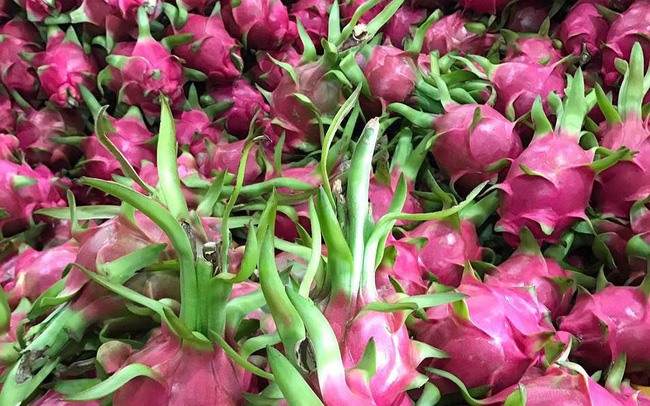 Economy
Economy

Australia will cut 90 per cent of import tariff lines in 2018 and 100 per cent of them in 2020 under the ASEAN-Australia-New Zealand Free Trade Agreement (AANZFTA) roadmap, said the Ministry of Industry and Trade (MoIT).
 |
| Việt Nam’s dragon fruits are exported to Australia. Australia is now the eighth largest exporter to Việt Nam, while Việt Nam is the 14th largest exporter to Australia, according to the Ministry of Industry and Trade. - Photo cafef.vn |
HÀ NỘI — Australia will cut 90 per cent of import tariff lines in 2018 and 100 per cent of them in 2020 under the ASEAN-Australia-New Zealand Free Trade Agreement (AANZFTA) roadmap, said the Ministry of Industry and Trade (MoIT).
Phạm Tuấn Anh, deputy head of the Ministry of Finance’s Department of International Cooperation, said this was a good opportunity for Vietnamese businesses to promote the export of goods to the Australian market when those import tariff lines reduce to zero per cent.
Việt Nam has had many advantages in exporting agricultural products, consumer goods, textiles, footwear and wood products to Australia. These groups are eligible for many tariff preferences under AANZFTA.
Australia is now the eighth largest exporter to Việt Nam, while Việt Nam is the 14th largest exporter to Australia, according to MoIT.
Australia is a potential export market for Vietnamese goods, especially seafood as its consumption in that country has increased rapidly to some one million tonne per year.
The domestic output of seafood has reached 220,000 tonnes, so Australia needs to import more than 700,000 tonnes of seafood every year. Meanwhile, Việt Nam is the third largest exporter of seafood in the world, after China and Thailand.
Moreover, Australian consumers like Vietnamese seafood due to its reasonable pricing and the good taste of Vietnamese freshwater fish.
Việt Nam’s cashew is also a promising commodity for Australian consumers. Việt Nam is the largest exporter of cashew nuts to Australia, accounting for some 74 per cent of cashew exports to the nation.
Some items such as wood and wood products, bags, suitcases, textiles, machinery and equipment are also considered potential commodities in the Australian market.
According to MoIT, Vietnamese goods have appeared in a small volume in supermarkets in Australia, reflecting the great potential of the Vietnamese export goods as well as Australia’s high import demand.
However, it is difficult for the Vietnamese goods to join Australia’s retail distribution system directly, MoIT said, because at present, Vietnamese enterprises do not have professional knowledge of the retail system, including measures on approaching the system as well as regulations on food hygiene and safety and technical standards. They have forgotten how to introduce and advertise Vietnamese products in supermarkets.
To provide the necessary information about the Australian distribution system to Vietnamese companies, the Việt Nam Trade Office in Australia has introduced to local businesses the list of large retail groups in Australia with an annual revenue of AU$1 billion (US$782 million) and their basic activities to help them market their products directly to the Australian distribution chain.
The retailers include Coles, Woolworths, Aldi, Woolworths Limited, Wesfarmers Limited, Harvey Norman Holdings Ltd, Metcash Limited and IGA. Currently, Việt Nam’s food stalls are present at the Coles supermarket chain, paving the way for more Vietnamese goods to reach Australian consumers.
According to MoIT, after more than six years of implementation of AANZFTA, the trade value between Việt Nam and Australia is increasing by an average of 5 per cent every year.
The General Department of Customs said in 2017, the bilateral trade value between Việt Nam and Australia reached more than $6.46 billion, a year-on-year growth of 22.9 per cent. Việt Nam’s exports to Australia reached $3.23 billion, up 12.5 per cent over 2016, while its import value from Australia stood at over $3.17 billion, up 29.7 per cent against 2016. Việt Nam gained a trade surplus of $480 million with Australia.
The bilateral trade value between the two countries in 2016 rose 6.5 per cent year-on-year. — VNS




